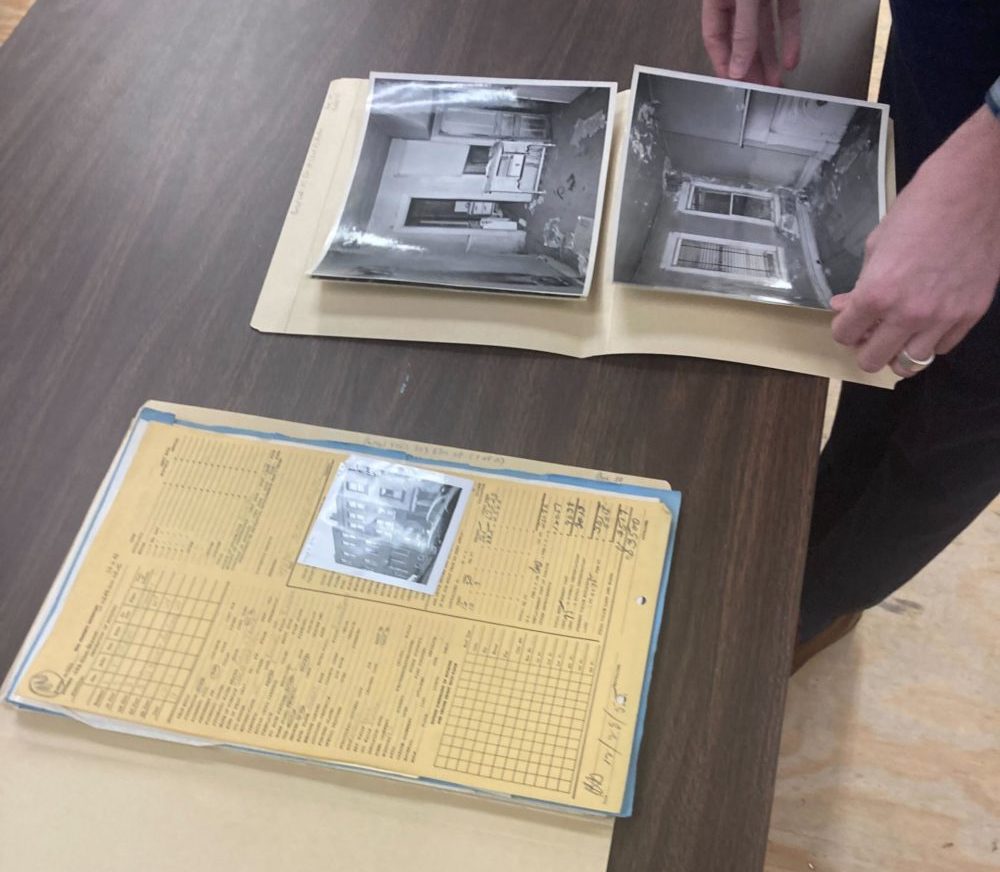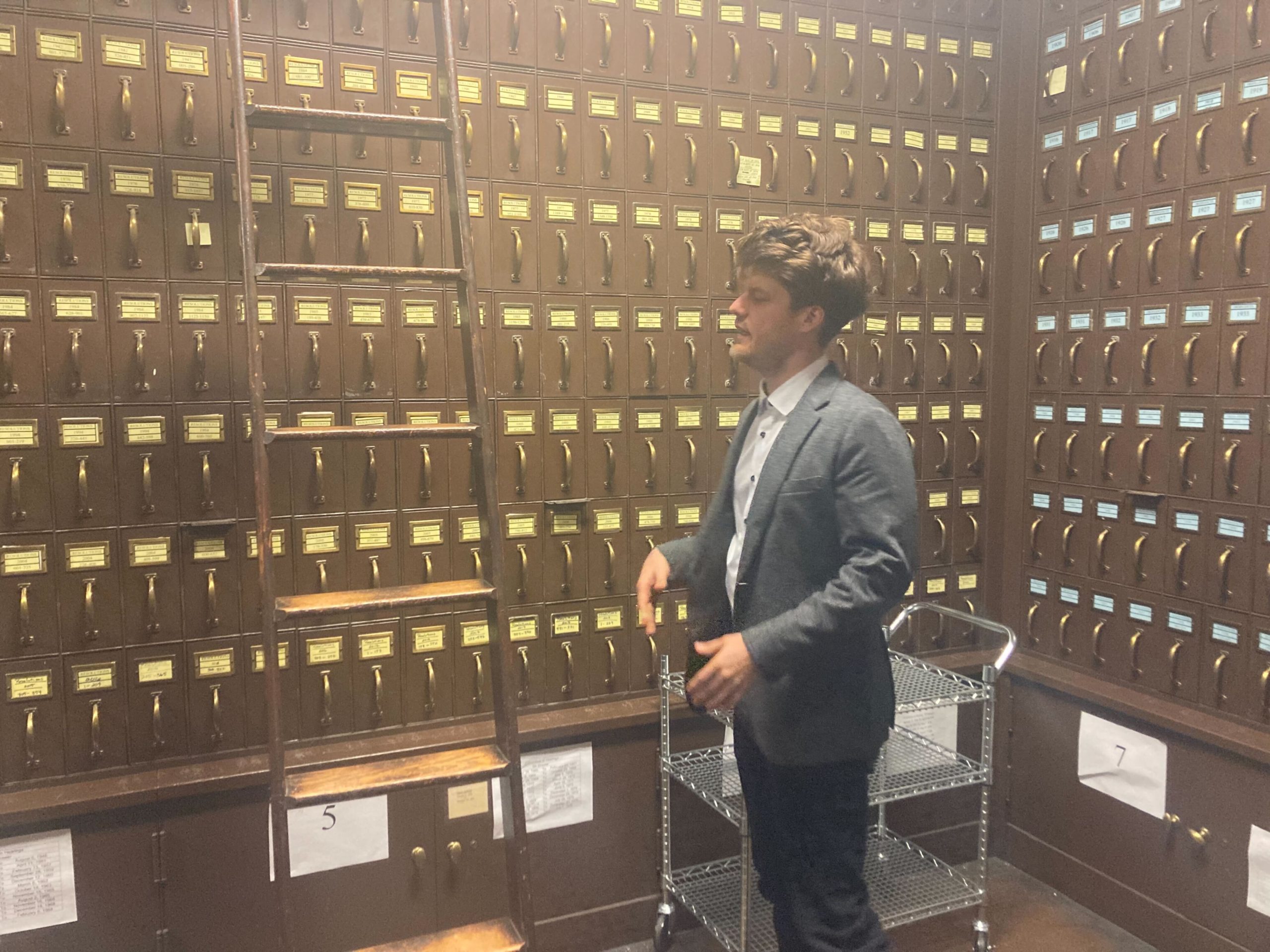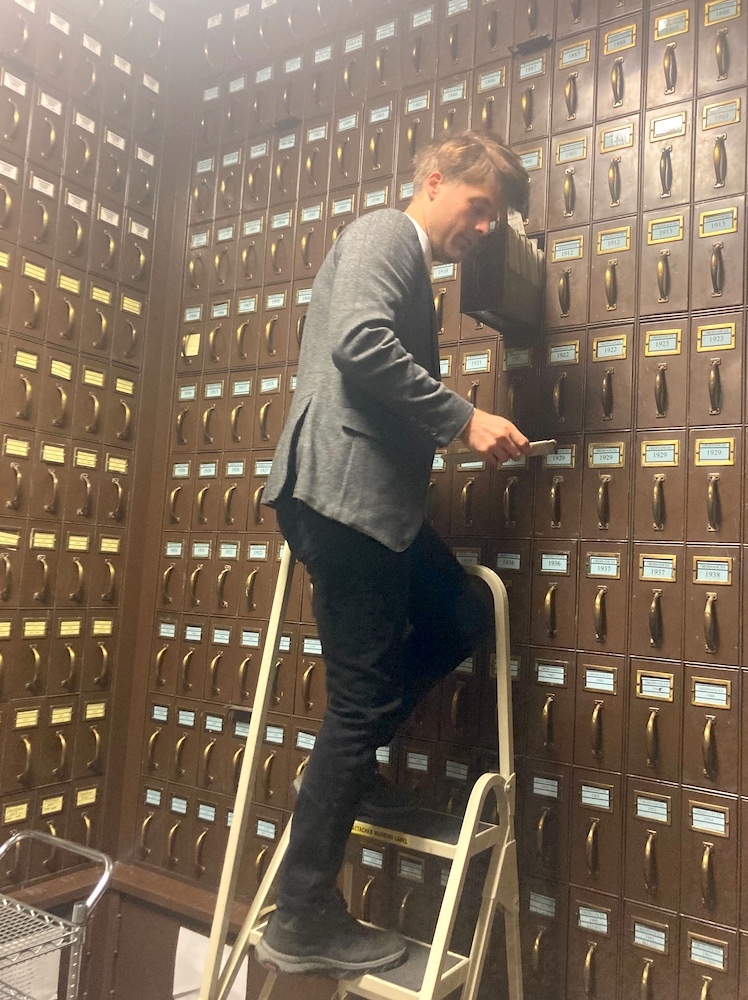
This editorial article is a part of Tech + Government Month 2022 of Technical.ly's editorial calendar. This month’s theme is underwritten by Spotify. This story was independently reported and not reviewed by Spotify before publication.
Although places like Boston and Seattle opted to start investing in records management programs in the 1980s, Pittsburgh had been keeping most of the city’s records — which date back decades — haphazardly stored in basements.
Then, former Pittsburgh City Council member Patrick Dowd discovered in 2012 that some of the records had been water damaged. A commission was formed that same year to discuss how the City could prevent other materials from sharing the same fate. The commission met on and off for a few years, but didn’t gain much traction at first.
“It was a mostly benign neglect,” Nick Hartley, manager of Pittsburgh’s record management division, told Technical.ly. “No one was really specifically mandated to care about and be thoughtful about how these things are maintained.”
After years of discussion, in 2016, Hartley became Pittsburgh’s first ever city archivist. Although some things have changed, such as acquiring a new title and a modest staff of half a dozen employees, his goals remain the same: to preserve records and create an accessible digital catalog of archival records, ensuring everyone from residents to city employees can access them.
“We’re all about collecting and preserving,” Hartley said, “so we utilize technology. To those ends, we want to make this stuff accessible to people. There are a variety of technological tools we use to support that.”

One room of records. (Photo by Atiya Irvin-Mitchell)
If you journeyed to the second floor of the City-County Building, as this reporter did on a recent afternoon, you’d find a room filled with seemingly endless boxes containing records and books. Once in the department’s possession, employees manually scan photos, maps, files, meeting minutes and neighborhood histories into the system to be accessed by the public or sometimes other departments.
Hartley explained that as the City’s records go back decades and the department itself didn’t exist until 2018, it’s been a long process of properly preserving and digitizing the records. It’s possible thanks to support from other departments and grants from the National Historical Publications and Records Commission (NHPRC), which other cities had previously received for digital archiving efforts.
“The NHPRC grant and the grant from the State Archives is helping us expand that to earlier records from 1816 through the 1860s, then we’re just prioritizing based on research interest and the potential use by the public and also city employees,” Hartley said. “We highlighted the planning commission minutes as another target of something we’d like to fully digitize and put online.”
While many city government projects were paused indefinitely amid pandemic restrictions, the records management department spent parts of 2020 moving records from the basement. The department digitized what Hartley estimates to be 1 million pages in municipal records during that time.

Pittsburgh City Records. (Photo by Atiya Irvin-Mitchell)
Hartley hopes that by this coming winter, the department will have officially launched its own digital archive that’s available to the public. In years prior, the department relied partly on the website Internet Archive where it uploaded digital records of books and documents for the sake of expediency. However, the website has limitations when it comes to other forms of records and photographs.

Nick Hartley. (Photo by Atiya Irvin-Mitchell)
Having its own digital archive will allow the team more freedom, Hartley said. While Internet Archive has been recently embroiled in legal battles with four publishing companies due to its practice of lending books that’ve been uploaded to the website, Hartley said that because municipal records and city council proceedings are open to the public, the lawsuit hasn’t impacted the department.
“During the pandemic, we needed a tool and we wanted to make this available and the Internet Archive was a great option,” he said. “It was available immediately, but we want to be able to make a broad spectrum of records available online and there are limitations when your only ability is to just ingest the books.”
With a team of interns, a city archivist, and a project archivist courtesy of an NHPRC grant project, Harley said the department is going to keep working to create an easily accessible digital record system one day at a time. One thing he’d like the public to know? Just that the record management department exists, and is committed to sticking around.
“Because this is a new program, I think some people are still kind of surprised that we’re doing this work. So we do take any opportunity to let people know that we offer services,” Hartley said. “We will continue to expand our digital archives so that people have as many records as we’re able to get on there available.”
Atiya Irvin-Mitchell is a 2022-2024 corps member for Report for America, an initiative of The Groundtruth Project that pairs young journalists with local newsrooms. This position is supported by the Heinz Endowments.Join the conversation!
Find news, events, jobs and people who share your interests on Technical.ly's open community Slack





